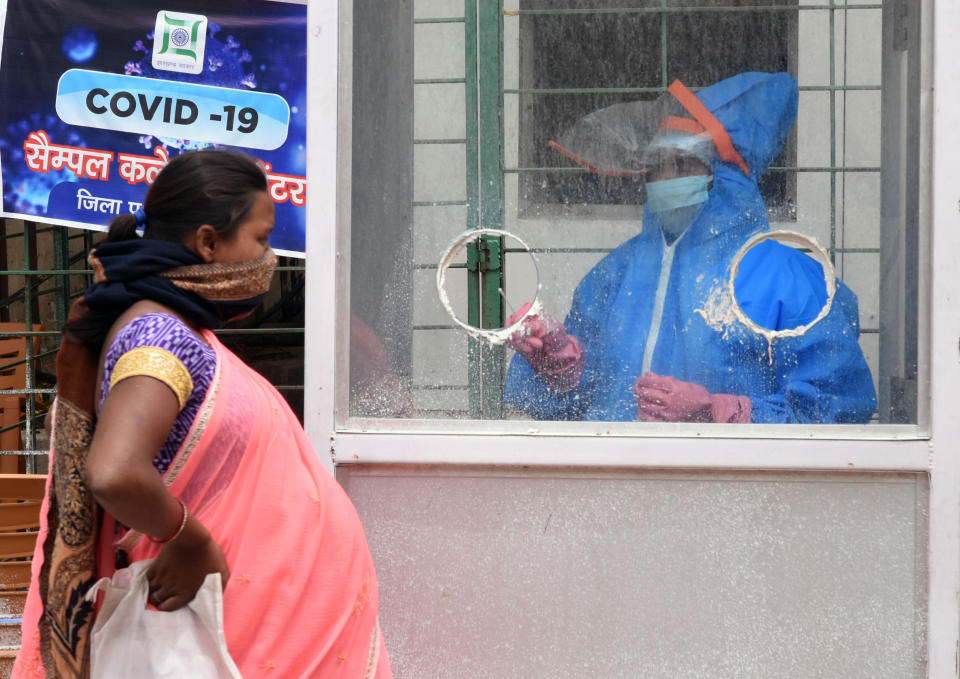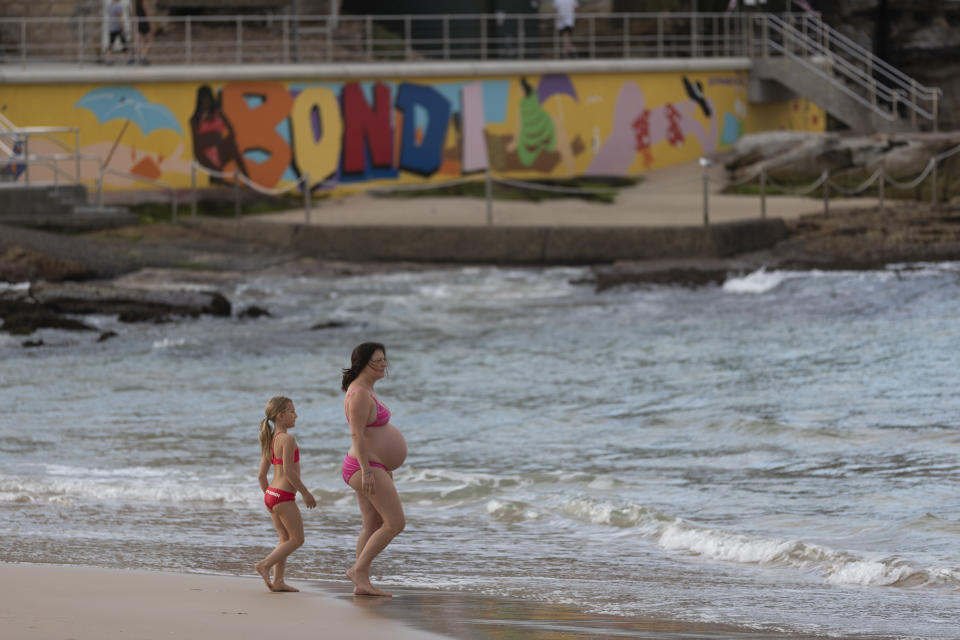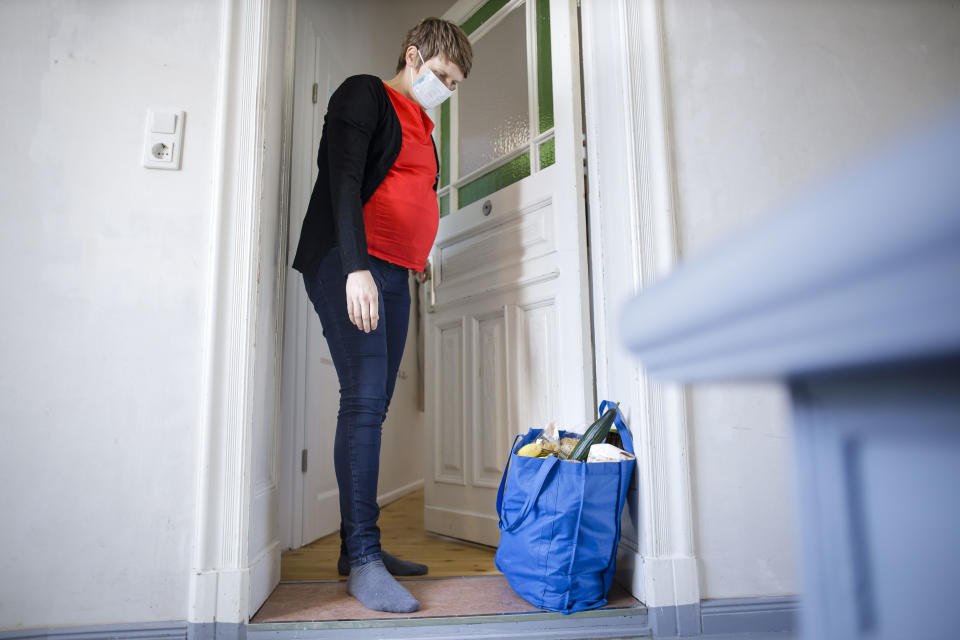Coronavirus: Everything we know about how it affects pregnancy

The coronavirus pandemic is affecting people all over the world, with pregnant women likely feeling particularly anxious amid the outbreak.
With the new pathogen emerging less than six months ago, no one can say for sure how it may impact mothers-to-be.
Erring on the side of caution, expecting women have been urged to be particularly careful, with infections and pregnancy “not a good combination in general”.
To better understand how pregnancy may be affected, scientists from Midwestern University in Arizona analysed the research that has been carried out so far.
While limited studies mean they cannot rule out newborns being infected in the womb, trials have repeatedly produced “no conclusive evidence” to back this up.
Early research suggests the infection is mild in four out of five cases, however, it can trigger a respiratory disease called COVID-19.

Coronavirus: ‘No evidence’ of babies becoming infected in the womb
Reports have emerged of newborns testing positive for the coronavirus.
Whether they caught the infection “intrauterine” or were exposed after delivery is unclear.
Latest coronavirus news, updates and advice
Live: Follow all the latest updates from the UK and around the world
Fact-checker: The number of COVID-19 cases in your local area
Explained: Symptoms, latest advice and how it compares to the flu
Animal studies in mice, pigs and cats suggest it is “feasible” coronavirus infections can arise via the womb if the mother is carrying the pathogen, the Midwestern scientists wrote in the Journal of Clinical Virology.
Infection after birth appears to be more of a “clear risk”.
With “limited” research available on the circulating coronavirus, the scientists looked at other strains of the same class.
Severe acute respiratory syndrome (Sars), a coronavirus strain, killed 774 people during its 2002/3 outbreak.
Although it was associated with pregnancy complications, Sars was not found to transmit from an infected mother to her unborn baby.
Speaking of coronaviruses as a class, Professor Andrew Shennan from King’s College London said: “Transmission from mother to baby has not previously been observed.
“Studies have shown coronavirus has not passed to amniotic fluid, foetal cord blood, placentas or the genital tract of infected mothers”.
The circulating coronavirus is more genetically similar to Sars than any other strain of that class.
So much so the International Committee on Taxonomy of Viruses “determined it is the same species as Sars but a different strain of the species”, Dr Nathalie MacDermott from King’s College London previously said.
The Midwestern scientists added: “To date, the morbidity and mortality described for [Sars] infections during pregnancy do not appear to be as severe for [the new coronavirus].
“Most reviews have concluded there is no conclusive evidence of transplacental transfer of [the new coronavirus] from mothers with [the infection].”
The scientists pointed to a recent study that looked at 38 pregnant women who tested positive for the coronavirus.
The study found “no evidence” of infection among the newborns and “no confirmed case” of virus transmission in the womb.
A later paper of 55 pregnant women who tested positive for the pathogen similarly found “no definite evidence” they passed the infection to their babies intrauterine.
That is not to say newborns have not become infected, however.
Scientists from Fudan University in Shanghai looked at 33 pregnant women who were confirmed to be carrying the virus.
Three of the women gave birth to babies who “presented with early onset infection” around two days later.
“Given that all the infected babies were first shown to be positive at two days, I suspect they were infected after being brought into the world rather than in the womb”, Professor Paul Hunter from the University of East Anglia previously said.
“This does not change the current consensus that transmission in the womb is unlikely”.
Tests of the women’s amniotic fluid, umbilical-cord blood and breast milk all came back clear.
“It seems more likely the three infants were infected very soon after delivery, possibly from the mother’s fingers”, Professor Andrew Whitelaw from the University of Bristol previously said.
Infected newborns may have caught the virus via “aerosol and droplet transmission in the delivery room, or transmission in the birth canal”, wrote the Midwestern scientists.
There is evidence the coronavirus may be shed in faeces, which could result in the birth canal becoming “contaminated”.
“Reassuringly”, no evidence suggests the coronavirus spreads in breast milk. Nevertheless, the scientists have called for further investigation into this.
To be on the safe side, they suggested doctors assume the coronavirus may be transmitted via the womb while further research is carried out.
Vulnerable foetuses can then be monitored particularly carefully and tested after delivery.
While the race is on the develop a vaccine, the scientists recommended jabs be developed with pregnant women in mind to “minimise the risk of foetal and neonatal infection”.

Coronavirus: What is the advice for pregnant women?
Pregnant women have been urged to be particularly careful not to catch the coronavirus, however, this may be a case of being on the safe side.
“Infections and pregnancy are not a good combination in general and that is why we have taken the very precautionary measure while we try and find out more,” Professor Chris Whitty, the UK’s chief medical adviser, previously said.
Nonetheless, pregnant women did not make up the 1.5 million vulnerable Britons who have been told to stay in their home for three months. These include severe asthmatics and blood-cancer patients.
According to the Royal College of Obstetricians and Gynaecologists (RCOG) “pregnant women do not appear to be more likely to be severely unwell than other healthy adults if they develop the coronavirus”.
Virtually unheard of just three months ago, experts are learning more about the virus every day.
“What we do know is that pregnancy in a small proportion of women can alter how your body handles severe viral infections,” according to the RCOG.
“What has driven the decisions made by officials to place pregnant women in the vulnerable category is caution.”
The Royal College of Midwives has urged expectant mothers to attend scheduled hospital appointments, calling them “essential to ensure the wellbeing of pregnant women and their babies”.
For those showing symptoms and in isolation, the RCOG recommends letting your midwife or antenatal clinic know in advance so they can make arrangements.
Some women not showing symptoms report being asked to attend these appointments alone.
For the time being the World Health Organization recommends infected mothers continue to share a room with their newborn and breast feed.
It advises these women practice “respiratory hygiene”, including washing their hands regularly and wearing a mask if possible.

What is the coronavirus?
Since the coronavirus outbreak was identified, more than 3 million cases have been confirmed worldwide, according to Johns Hopkins University.
Of these cases, over 896,600 are known to have “recovered”.
Globally, the death toll has exceeded 211,500.
The coronavirus mainly spreads face to face via infected droplets expelled in a cough or sneeze.
There is also evidence it can survive on surfaces.
Symptoms include fever, cough and slight breathlessness.
The coronavirus has no “set” treatment, with most patients naturally fighting off the infection.
Those requiring hospitalisation are given “supportive care”, like ventilation, while their immune system gets to work.
Officials urge people to ward off the coronavirus by washing their hands regularly and maintaining social distancing.




